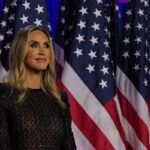
The Trump administration has formally asked the U.S. Supreme Court to curb lower court rulings that have blocked its ban on birthright citizenship from taking effect nationwide.
In its application, filed Thursday, the administration argued that federal judges should not have the power to issue sweeping injunctions that halt executive policies across the entire country while legal challenges are still pending.
“District courts have issued more universal injunctions and TROs [temporary restraining orders] during February 2025 alone than through the first three years of the Biden Administration,” the filing states. The administration contends that this increase in nationwide rulings undermines the Executive Branch’s ability to enforce its policies and places unnecessary strain on the Supreme Court’s emergency docket.
At this stage, the administration is not asking the justices to rule on the constitutionality of President Donald Trump’s executive order banning birthright citizenship. Instead, it is asking the Court to narrow the scope of multiple lower court injunctions so they apply only to the actual plaintiffs involved in the lawsuits, rather than blocking the policy nationwide.
BREAKING: The Trump administration is asking the Supreme Court to limit three lower court orders that prevent the birthright citizenship ban from taking effect nationwide.
“Universal injunctions have reached epidemic proportions since the start of the current Administration,”… pic.twitter.com/wxEDSWQBan
— Katelynn Richardson (@katesrichardson) March 13, 2025
“These cases—which involve challenges to the President’s January 20, 2025 Executive Order concerning birthright citizenship—raise important constitutional questions with major ramifications for securing the border,” the application states.
“But at this stage, the government comes to this Court with a ‘modest’ request: while the parties litigate weighty merits questions, the Court should ‘restrict the scope’ of multiple preliminary injunctions that ‘purpor[t] to cover every person * * * in the country,’ limiting those injunctions to parties actually within the courts’ power.”
The request comes in response to rulings from federal judges in Maryland, Washington, and Massachusetts, who blocked the administration’s order preventing children born to parents who are either in the U.S. illegally or on temporary visas from gaining automatic citizenship.
The issue of nationwide injunctions has been a point of contention in recent years. Several Supreme Court justices have previously criticized the practice, arguing that it allows a single district judge to impose nationwide policy decisions. Justice Neil Gorsuch, in particular, denounced what he called “a rash of universal injunctions” during oral arguments in a case involving the abortion pill in 2024.








